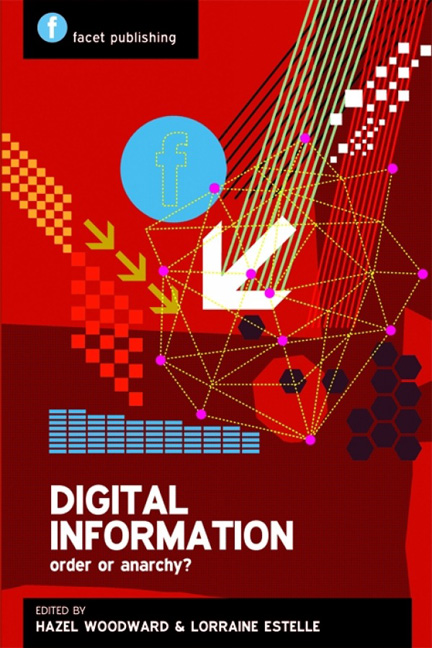Book contents
- Frontmatter
- Contents
- Acknowledgements
- Contributors
- Preface
- 1 Introduction: digital information, an overview of the landscape
- 2 Scholarly communications: the view from the library
- 3 Scholarly communications: the publisher's view
- 4 E-books and scholarly communication futures
- 5 Digitizing the past: next steps for public sector digitization
- 6 Resource discovery
- 7 Who owns the content in the digital environment?
- Index
3 - Scholarly communications: the publisher's view
Published online by Cambridge University Press: 08 June 2018
- Frontmatter
- Contents
- Acknowledgements
- Contributors
- Preface
- 1 Introduction: digital information, an overview of the landscape
- 2 Scholarly communications: the view from the library
- 3 Scholarly communications: the publisher's view
- 4 E-books and scholarly communication futures
- 5 Digitizing the past: next steps for public sector digitization
- 6 Resource discovery
- 7 Who owns the content in the digital environment?
- Index
Summary
Background
For the future of digital information to be orderly, that information must be discoverable, accessible, structured, interoperable, linked, semantically tagged and well identified; it must have clear provenance and good version control; and it must be preserved and curated. There must also be a means of bestowing authority on the corpus of literature in order to give the readers a quick but effective way of assessing the importance or likely importance of anything that they come across. Nowadays it needs to embrace both formal and informal scholarly communications (to include not only scholarly journals and monographs but also blogs, wikis, tweets and whatever else web users throw at it). And, of course, all this needs to have a sustainable and robust funding mechanism behind it and to be scalable to deal with the ever-increasing outputs from scholarship.
There is no doubt whatsoever in my mind that the future of digital scholarly information will be orderly. Research efficiency depends on it and is something that will be increasingly scrutinized as funders and research establishments look to maximize the impact of the research that they are associated with. For the most part, the academy will also demand organization, although there are currently widespread instances where academics act in their individual interests rather than for the collective benefit of scholarship, for example by storing data only on un-networked computers in their labs. The question, then, is how we get to this orderly future. What barriers are in the way and what obstacles need to be overcome? How can we get to that future as quickly as possible, taking the best of the present with us instead of destroying something now only to reinvent it later?
I am going to restrict myself primarily to a discussion of scientific journal publishing since that is what I know best, but much of what follows is, or will become, applicable to other disciplines. Indeed the issues of discoverability, digital curation and preservation, version control, provenance and trustworthiness are applicable to all online content, including scholarly e-books, research data, audio and video files, news content, etc. In the discussion that follows, I will use the NISO Journal Article Version recommended practice nomenclature for article versions, a full explanation of which can be found in NISO (2008) .
- Type
- Chapter
- Information
- Digital InformationOrder or anarchy?, pp. 57 - 88Publisher: FacetPrint publication year: 2009



